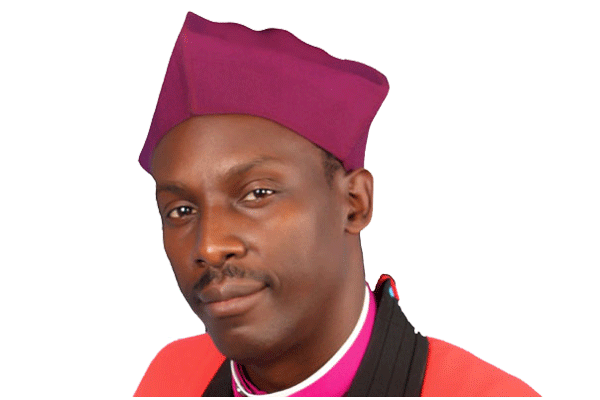2024 census; bornagain “abalokole” misnomer

Author: Rt. Rev. Dr. Fred Sheldon Mwesigwa. PHOTO/FILE
What you need to know:
- How is UBOS going to categorize members of some cultic groups that are regarded so, even by Pentecostals? Aren’t these also to be treated as ‘Born-again’ or ‘Abolokole’?
The Uganda Bureau of Statistics (UBOS ) technical, or can I say research team, is in the process of effecting an academic coup by designating a section of Ugandans, who belong to loosely what has conventionally been regarded as members of the Pentecostal Christian tradition, as born again or ‘Abalokole’.
There is no doubt that the Pentecostal movement has been a worldwide phenomenon and is now a force to reckon with in terms of numbers and influence (Kevin Ward, 2010).
However, in terms of semantics, it is problematic to refer to this section of Uganda’s population as ‘Born again’ or, ‘Abalokole’ without fundamentally revising history of Abalokole in Uganda and doing justice to the very section of population referred to as Abalokole, since it is practically impossible to have a church or faith tradition of followers who are essentially ‘Abalokole’, in view of the definition of the terminology.
For starters, the Uganda Census Report of 1969 and 1991 did not capture data on followers of other faith traditions, apart from Roman Catholic, Church of Uganda, Muslims.
The 2002 census for the first time reported that Pentecostals constituted 4.6 percent of Uganda’s population. The 2014 Uganda Census Report posted the Pentecostals as having registered 11.1 percent, a phenomenal stride from 4.6 percent of 2002; other Christians, perhaps Jehovah’s Witnesses, Seventh Day Adventists, Church of Latter Day Saints etc constituted 2.0 percent.
What could have prompted the change from Pentecostal to Born Again? Is this a theological or political articulation of sensitive historical and philosophical concepts? Which research instrument, methodology was used or think tank to arrive at a description of a section of Uganda’s religious population, inadequately?
The concept of ‘okulokoka’, or accepting Jesus Christ as personal Lord and Savior, according to the late Prof Apollo Nsibambi began in 1922 when Semiyoni Nsibambi stopped taking alcoholic drinks and declared in a written pledge that he had accepted Jesus Christ as Lord and Saviour.
Semiyoni Nsibambi had an encounter with Dr Joe Church of the Rwanda Mission in 1929 with whom they developed deep spiritual revival that later birthed obulokole in Uganda (Nsibambi in Rukirande et al, 2005). The watershed moment for ‘okulokoka’ in Uganda is 1935 in Kigezi when a convention was held at Rugarama in September following the first fruits of okulokoka.
Since then every 10 years, a convention for ‘okulokoka’ in Uganda is held under the banner of the East African Revival brethren of the Church of Uganda. How can UBOS therefore casually use a term that has been in use for almost 90 years to refer to a particular section of Uganda’s population with the stroke of a pen?
Let us turn to the etymology of the word ‘Okulokoka’. Okulokoka in Luganda means ‘getting saved’ and publicly declaring departure from a sinful life of alcohol, sexual immorality, smoking, cigarettes, drugs, gambling etc.
If you describe the Pentecostals as ‘born-again’ or ‘Abalokole’, is your hypothesis likely to stand the test of time? While some Pentecostals argue that their gatherings (mainly they don’t like the term church or religion) constitute Abalokole, a causal survey doesn’t suggest so.
During my recent visit to Mbarara Central Prison, I was able to establish that out of about 1957 Prisoners, the born agains constituted perhaps the biggest group with Roman Catholics and Church of Uganda almost even, Moslems above one hundred and Adventists very few.
Now, although not all prisoners are normally guilty of crimes brought against them a good section are, and in my interactions, some Anglicans, attested to that. How does UBOS treat this astronomic number of Pentecostals in prison, in view of ‘Okulokoka’ meaning ‘the saved or born again?’ Isn’t this a misnomer? How does UBOS treat Pentecostal churches where some pastors have publically divorced their spouses? Are these to register as ‘Born again’ or ‘Abalokole’? How is UBOS going to categorize members of some cultic groups that are regarded so, even by Pentecostals? Aren’t these also to be treated as ‘Born-again’ or ‘Abolokole’?
It is, therefore, a misnomer to describe Pentecostals, a worldwide commonly understood Community of Christians that emphasizes gifts of the Holy Spirit, ‘born again’ or ‘Abalokole’.
Although Pentecostalism first began in the USA, Los Angeles Azusa street in 1906, in Uganda it started in 1960 according to Apostle Mitala at the site of present day Makerere Full Gospel Church (21st September 2012, Monitor).
It defeats the test of intellectual honesty, Church history, theology and philosophy, though perhaps, it is politically correct to describe Pentecostals as ‘Abalokole’ or ‘Born again.’
Rt Rev Fred Sheldon Mwesigwa, Bishop of Ankole Diocese. Mr Daniel Kalinaki will be back next week.




